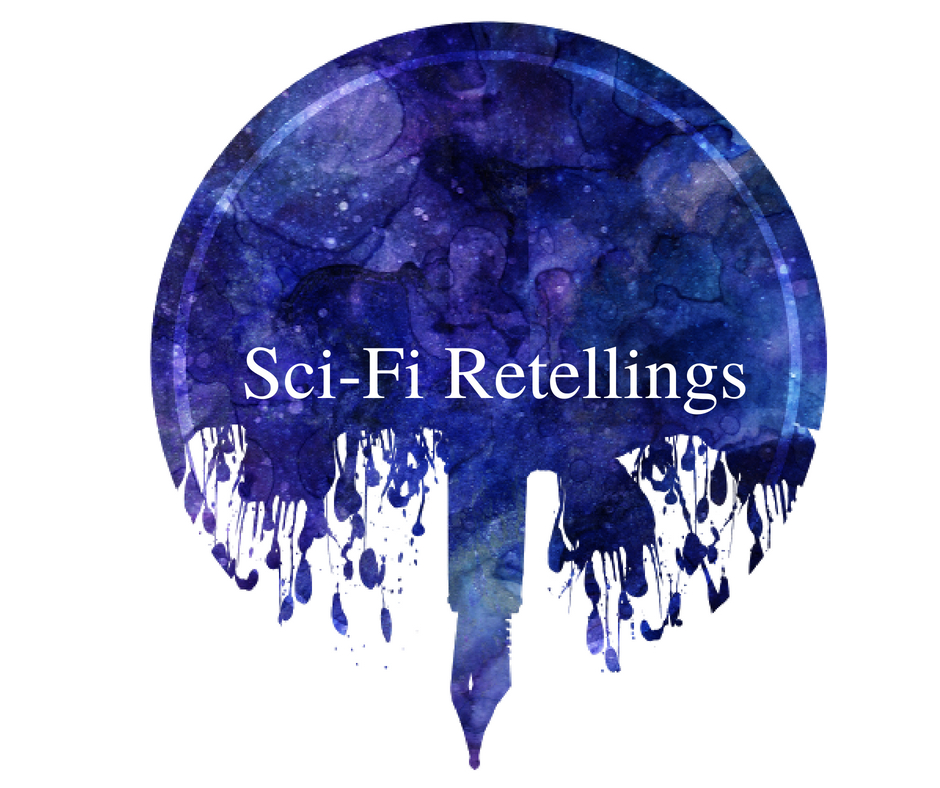Retellings have become increasingly popular lately…it seems to me, anyway. And I am no exception to this rule. With the explosion of Indie authors due to affordable author sites like Createspace, KDP, Ingramspark, Draft2Digital (just to name a few), it’s never been easier to see yourself published. With this ease of publishing, however, comes a new challenge:
Writing stories that are fresh and original.
Today, I am here to talk about a new genre that is growing increasingly more popular in our technological age.
Science Fiction Retellings
By far, the most popular Science Fiction Fairytale retelling series out there is The Lunar Chronicles Series by Marissa Meyer. Cinder truly made a big splash with its fresh take on a cyborg Cinderella. But you will also find other, less known stories out there–such as some of the novellas in the Rooglewood anthologies. Annie Douglass Lima and DJ Edwardson are two authors in the Indie community that I personally know write in the science fiction genre. But, honestly, there are not NEARLY as many science fiction stories as there are fantasy ones. This creates an amazing opportunity for authors who are willing to dabble in faraway galaxies. For the purpose of my post, I will be referencing more films than books, simply because there are more of them out there. And I love movies. Ahem.
So. You want to write a fairy tale set in outer space: What makes a good Sci-fi Retelling?
- The core elements of the fairy tale are present. Whatever tale you choose to use, keep the heart of the tale. There are some things you simply can’t do without. You can’t have Snow White without some sort of sleep/death scenario. You can’t have Beauty and the Beast without some sort of sacrifice or beast. There is no Peter Pan without the Lost Boys. So choose what elements from the original stories
- Do your research. Science Fiction is, obviously, inspired by SCIENCE. It’s not like fantasy, where you can widely make your own magical rules and stick with them. No, with Science Fiction you need to have some level of realism to keep the story believable. Like Historical Fiction. Without the Historical. And with aliens and planets and hyperspace and black holes… Now, this isn’t to say you can’t have magic in your science fiction. Um, hello, Star Wars. But you do need to handle the hard science in your story to some extent. Instead of worrying about the rules of magic, you’ll be worrying about black holes, spaceship design, intergalactic travel, and probably life on other planets (I do mean aliens).
- Choose your sub-genre. Science Fiction, like fantasy, is extremely broad, with dozens
- Lean more toward the science than the magic. You can use both, but if you’re trying to sell Science Fiction, people are going to expect more Science than fantasy. Just simple math.
- Terminology. This will also play a big factor in your story telling. For example, a young boy in my current WIP (a Snow White/Peter Pan Science Fiction story for MG readers) has a hand held device he carries around that allows him to connect to wi-fi, gain access to ships’ computers, and generally create technological mayhem. I have so many choices: is it a tablet? a datapad? a com unit? a cell phone? some sort of cybernetic implant? Seriously, whichever word I choose will help define the tone, location, and time period of my story. If I call it a cell phone, people will assume this is a near distant future story, while an implant would make it much further into the void.
In the end, I think the most important thing to remember is to try to make the retelling your own. This is your story, your fairy tale, your world…give it YOUR spin. Keep the core elements of the fairy tale and the hard science in mind, but let your own heart drive the story. I’m excited to see what faraway galaxies you take us to.

